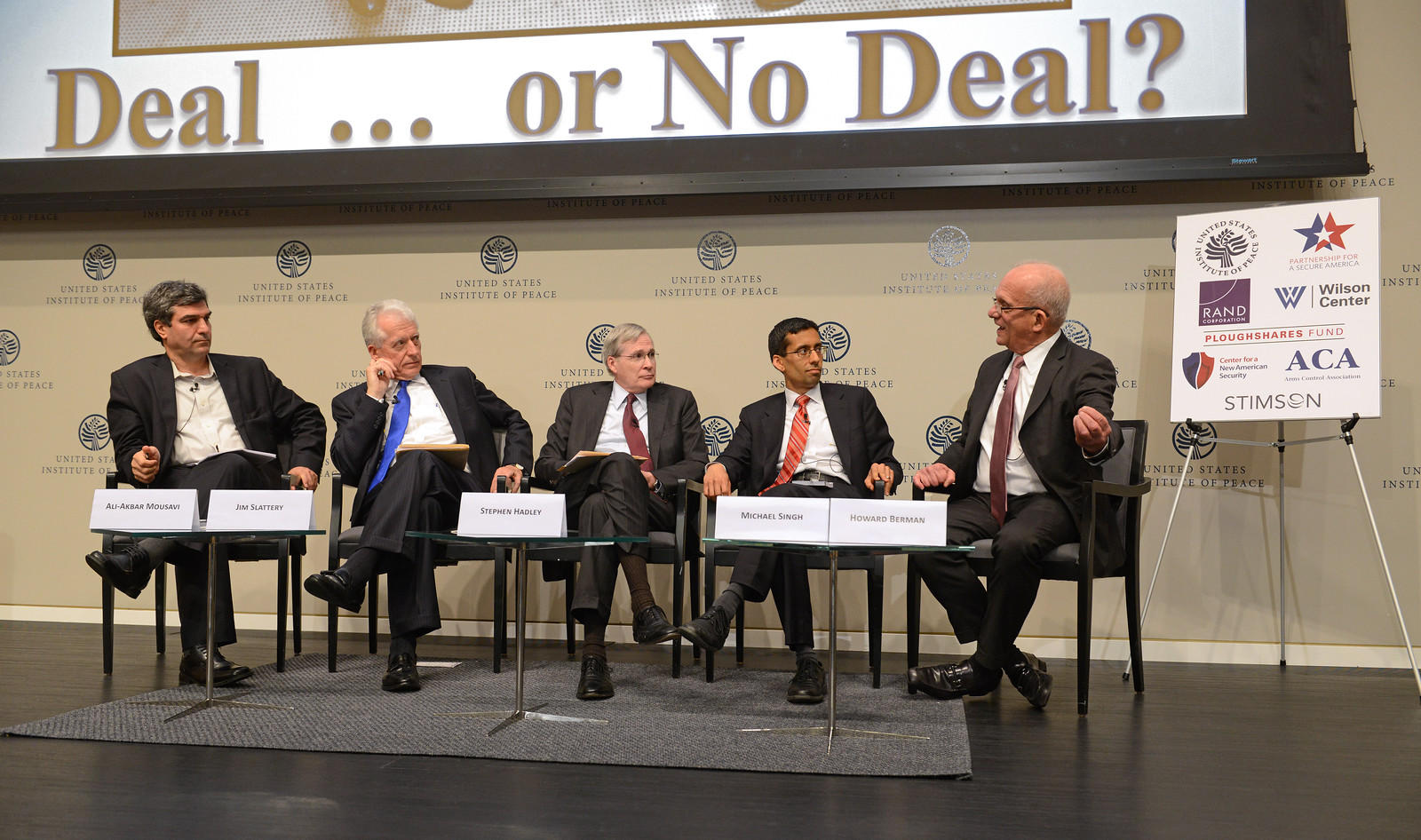Politics of a Nuclear Deal: Former U.S. & Iranian Officials Debate
An Iran Forum Series Event
Read the Event CoverageIran and the world’s six major powers now face a June 30 deadline for converting a blueprint into a final nuclear deal. A unique panel of former U.S. and Iranian officials assessed the status of the talks and the political dynamics that will determine the fate of any agreement in Washington and Tehran. The discussion was held on April 20 at the U.S. Institute of Peace.

This event was the fourth in the Iran Forum series hosted by a coalition of eight think tanks, including USIP, the Woodrow Wilson International Center for Scholars, RAND, the Arms Control Association, the Center for a New American Security, the Stimson Center, Partnership for a Secure America, and the Ploughshares Fund. Continue the conversation on Twitter with #IranDeal.
Speakers
- Stephen J. Hadley, Moderator and Lead Discussant
Chairman of the Board, U.S. Institute of Peace
Chair, RAND Center for Middle East Public Policy Advisory Board
Former National Security Advisor (2005-2009) - Ali-Akbar Mousavi
Former member of Iran's parliament (2000-2004)
Visiting Fellow at Virginia Tech & Human Rights Advocate - Jim Slattery
Former Congressman (D-KS, 1983-1995), Recently Visited Iran
Partner, Wiley Rein LLP - Howard Berman
Former Chairman of the House Foreign Affairs Committee (D-CA, 1983-2013)
Senior Advisor, Covington & Burling LLP - Michael Singh
Former Senior Director for Middle East affairs at the National Security Council (2005-2008)
Senior Fellow, The Washington Institute



